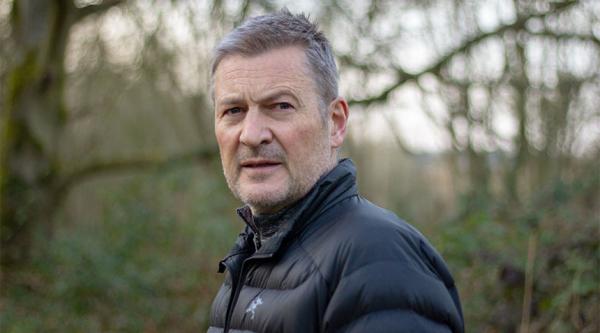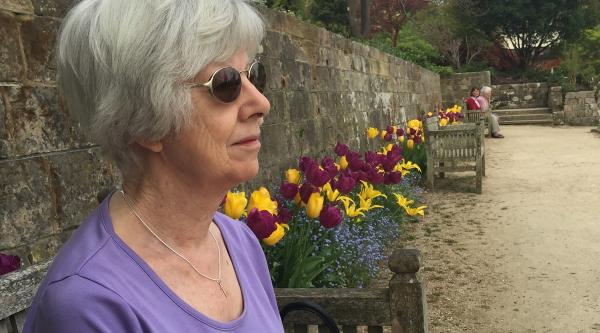Alzheimer's Society's view on NHS Continuing Healthcare
NHS continuing care is care provided and funded by Clinical Commissioning Groups (CCGs) for people who have a primary healthcare need but who may also have social care needs, such as help with getting out of bed or bathing, as a result of their medical needs. Unlike most social care, which is means-tested and provided by councils, NHS continuing care is free at the point of use.
People with dementia have experienced particular difficulties accessing NHS continuing healthcare for three reasons. First, the health and social care system discriminates against people with dementia. Despite dementia being a medical condition, the needs of people with dementia are often seen as social care rather than healthcare needs. As a result, thousands of people with dementia spend substantial amounts of money on social care they need as a result of their medical condition.
Second, the design of the NHS continuing care system is not appropriate for people with dementia. The application and appeals process are difficult for people with dementia to navigate and, in many cases, assessments are conducted by health and social care professionals using generic guidance documents, without consulting professionals with experience of dementia. Alzheimer's Society calls for independent, experienced support and advocacy to help people with dementia navigate the application process and assessments to include a health or social care professional with experience of dementia.
Third, the performance of the NHS continuing care system is poor. There is a concerning lack of performance data, clear processes and guidance and timelines for decision-making. This is exacerbated by weak enforcement of the National Framework, which outlines the eligibility criteria for NHS continuing care that CCGs must adhere to.
In 2013, the All Party Parliamentary Group on Parkinson's conducted an inquiry into NHS continuing care. Alzheimer's Society supported the APPG's work and its recommendations. Alzheimer's Society is working, in partnership with other organisations and NHS England, to deliver the reforms proposed by the APPG.
What Alzheimer’s Society calls for
- Understand demand for NHS continuing care by collecting condition specific data at every stage of the application process. At present, NHS England only monitors the number of people claiming NHS continuing care in CCG areas in England and the total amount spent on NHS continuing care in England. This means that NHS England cannot monitor the compliance of CCGs with the National Framework. Alzheimer’s Society calls for an effective monitoring framework so that we know who is claiming NHS continuing care, for what conditions and for how long.
- Establish an improved national framework with clear processes, guidance and timelines for decision-making. There are no negative consequences for CCGs who do not comply with the National Framework, no substantive guidance on timelines and an appeals process that is not fit-for-purpose. The result is people with dementia not receiving care that they are entitled to and enduring long waiting times, whilst spending large amounts of money to fund their care. Alzheimer’s Society calls for CCGs to be given clear guidance on timelines and the National Framework to be enforced robustly. In addition, data should be collected on the number, and outcome, of appeals.
- Implement an assessment process that reflects the needs of people with complex and fluctuating conditions. In many cases, assessments are conducted by health and social care professionals using the generic Decision Support Tools, which help professionals to apply the National Framework, without consulting professionals with experience of dementia. This lack of detailed knowledge and understanding of dementia severely affects the quality of assessments. For example, people with advanced dementia have been assessed as having no emotional or psychological needs. Alzheimer’s Society calls for NHS continuing care assessments to include a health or social care professional with experience of dementia.
- End inappropriate reassessment of people with dementia. Dementia is a progressive condition. This means that the needs of people with dementia will only worsen. Despite this fact, many people with dementia are reassessed for NHS continuing care. This is based on the seemingly illogical assumption that a person with dementia’s condition will improve. This causes significant anxiety. Alzheimer’s Society calls for an agreement that applicants with a progressive condition, or one that will not change, should not be continually reassessed for eligibility.
- Provide independent, experienced support and advocacy to people with dementia. The NHS continuing care application process is extremely complex. Sue Ryder Care has estimated that it takes a full day to complete the relevant application forms and consult with the relevant professionals involved. Alzheimer’s Society calls for people with dementia to receive independent, experienced support and advocacy to help them to navigate this process. The provision in the Care Act, which entitles people who are applying for joint local government-NHS funded continuing care to independent advocacy, should be extended to all people who are applying for NHS continuing care.
References and further reading
All Party Parliamentary Group on Parkinson's (2013), Failing to care






